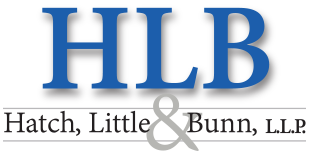Landlord & Tenant Law FAQ
- What is a lease?
- What should be included in every lease or rental agreement?
- What are my lease options?
- What are some of the responsibilities of the residential landlord and tenant?
- Can I evict a tenant if it isn’t working out?
- How do I evict a tenant?
What is a lease?
A lease is a written or oral agreement that sets out the rules landlords and tenants agree to follow in their rental relationship. It is a legal contract full of crucial business details, such as how long the tenant can occupy the property and the amount of rent due each month.
What should be included in every lease or rental agreement?
You should always include the following:
- Names of all tenants
- Who will be occupying the premises
- Term of the tenancy
- Rent amount
- Deposits and fees – include where the security deposit will be held
- Repairs and maintenance responsibilities
- Entry to rental property rules
- Restrictions on tenant criminal activity
- Restrictions on pets
- Other house rules / regulations
What are my lease options?
Since the lease can give you many remedies and protect you to the fullest extent of the law, we recommend using a lease written to NC law. For example, for residential properties, we draft the lease for the AANC. We can also review a lease you are considering or draft one for you for your use.
What are some of the responsibilities of the residential landlord and tenant?
While the relationship between landlord and tenant is governed by the terms of the lease agreement, state and federal laws dictate that certain requirements be met and cannot be changed regardless of a lease agreements. All residential landlords are responsible for delivering and keeping the rental property in accordance with North Carolina’s Residential Rental Agreement Act and complying with the Tenant Security Deposit Act. Tenants are also bound by provisions of the Residential Rental Agreement Act, including paying rent on time and keeping the occupied premises as clean and safe as conditions permit. Tenants must advise the Landlord promptly of needed repairs and the Landlord must act to correct the same. There is also a specific Act controlling the responsibilities of vacation rental properties.
Can I evict a tenant if it isn’t working out?
It depends. You must have a legitimate reason to evict the tenant. For example, you can evict a tenant for nonpayment of rent, breach of the lease agreement or criminal activity (under Article 7 of Chapter 42 or maybe under your lease agreement) or holding over (staying beyond the end of the lease term).
How do I evict a tenant?
You will need to file a Complaint in Summary Ejectment and a Magistrate Summons. You may wish to have legal assistance in filling out these papers.
Serving North Carolina clients for more than 50 years
Hatch, Little & Bunn, LLP has provided comprehensive legal services to individuals and businesses in Raleigh, Durham, Chapel Hill, Research Triangle Park, Wake County and throughout North Carolina from offices by the state capitol for over half a century. Our attorneys are licensed to practice before all North Carolina state and federal courts. Call (919) 899-9827 today, or contact us online to schedule a consultation with one of our attorneys about your concerns.


